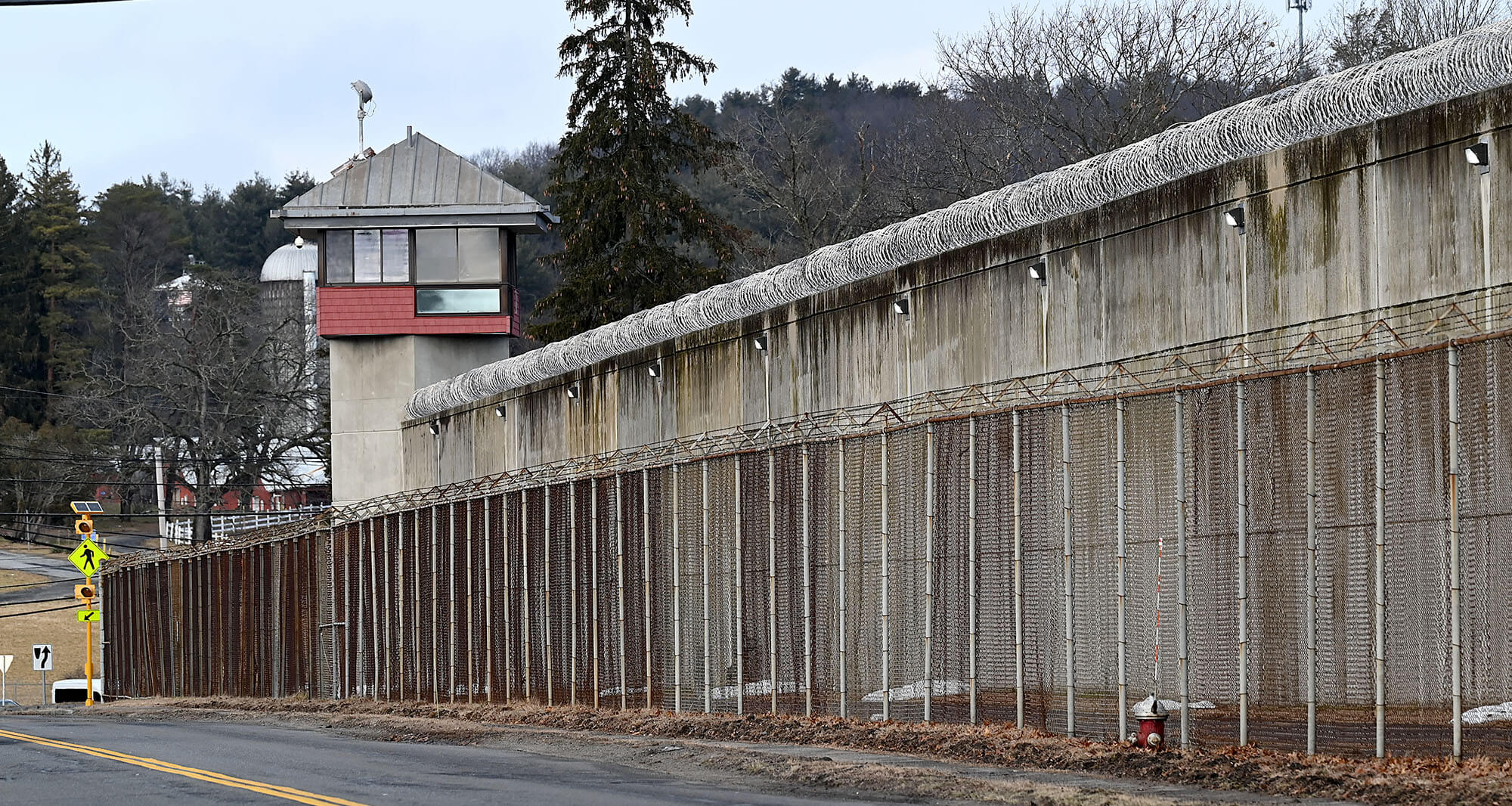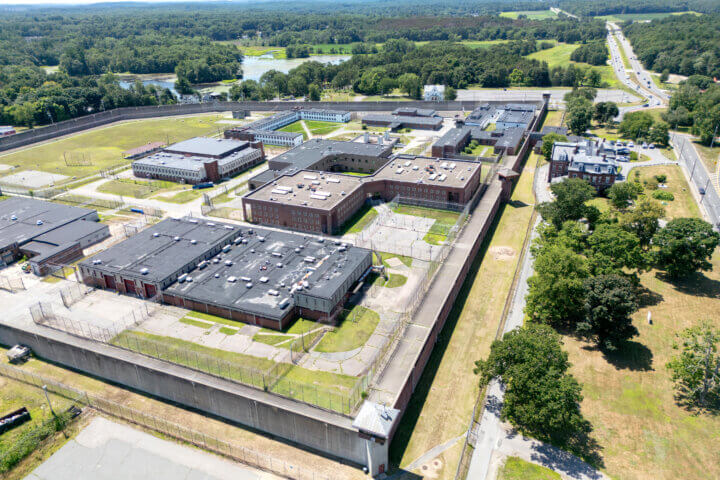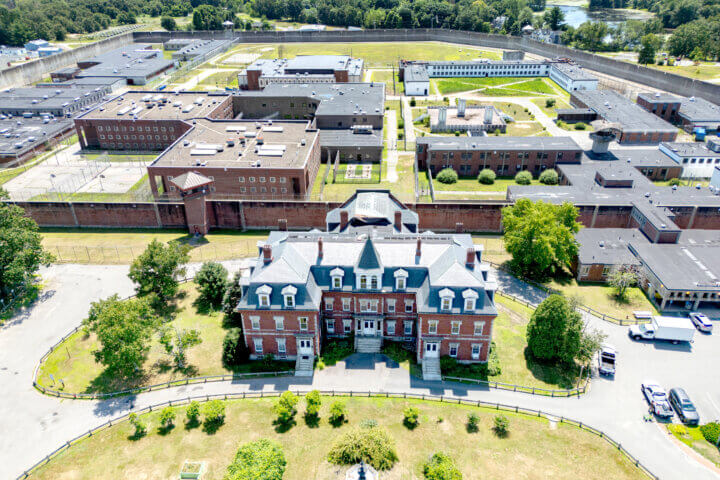After shaking off the initial shock of the news that MCI-Concord will close as soon as June — opening new frontiers for the redevelopment of the sprawling property — town officials are moving to the strategy stage.
“How will the state dispose of the property? We don’t know yet,” Deputy Town Manager Megan Zammuto told the Select Board Monday night.
As first reported last week by The Concord Bridge, the Massachusetts Department of Correction intends to close the medium security prison, which had been housing inmates at less than 60% of capacity, as soon as June. The shutdown won’t affect the nearby Northeastern Correctional Center, a minimum security facility that houses criminally sentenced men prior to release.
As officials hustle to understand the scope of what the closure of the Commonwealth’s longest-running men’s prison could mean for Concord, Zammuto urged the Board to present a united front in dealings with the state.
“It’s really important that we speak using one voice. I think mixed messaging could cost us an opportunity here,” she said. “We want to be prepared and unified so that the state and legislators understand our priorities.”
MCI-Concord-SB-meeting-presentation-1.29.24The question of what constitutes the town’s top priorities, of course, is still under construction.
Housing? Commercial development? Municipal buildings? Are there historical preservation concerns? And what about doing something with that harrowing Route 2 rotary?
This early, it’s all still on the table, the group agreed.
Readily acknowledging Concord currently has far more questions than answers about what’s next for the 1878 penitentiary, Zammuto ran through the basics for the Select Board and said more details are on the way. It’s so early in the process, she said, that the town doesn’t yet have a single point person at the state level to deal with.
“We know that the Division of Capital Asset Management and Maintenance, also known as DCAMM, will facilitate the sale, lease or transfer of the property. And also, some big news for us is [that] DCAMM may transfer the water treatment facility to the town of Concord for a direct public use,” she said.
Even after Concord inmates are transferred to other prisons, redevelopment of the 50 acres currently occupied by the lockup likely won’t be quick, officials agreed: “I think that the plan is for the use to stop, for the prison to cease operations, at the end of the fiscal year. But I anticipate the transfer of this property to be a multi-year endeavor,” Zammuto told Board member Terri Ackerman.
The state Legislature will also be involved in the closure, which Gov. Maura Healey included in her new $58 billion budget proposal, saying last week that shuttering MCI-Concord would save the Commonwealth about $16 million a year.
“It’s understandable that the governor could change the operations level of the facility. There’s a big step to be made between that and actually divesting of the property,” Select Board member Mark Howell warned.
Seated next to him, Board member Linda Escobedo noted that there were potential concerns about preserving some structures given that the prison “had played such a role in the history of Concord, back to the 1800s, in terms of employment and all kinds of things.”
Housing has repeatedly bubbled up as a potential future use for the MCI-Concord campus, although Select Board Clerk Mary Hartman argued the town already has multiple housing programs, including some with affordable units, underway.
Done right, MCI-Concord redevelopment “could be an opportunity to bring revenue,” Hartman said. “I know we need housing, but we already have quite a bit of housing in the pipeline. So I looked at it as an opportunity for commercial or business development to help us [relieve] some of the pressures.”
Hartman previously suggested to The Bridge that Concord could even someday use the land for an upscale development in the vein of Boston’s Charles Street Jail. That 1851 facility was shut down as a prison in 1990 and is now in business as the upscale Liberty Hotel.
When the board briefly picked up the MCI conversation after pausing to nominate (and renominate) candidates for local offices at the town caucus, Chair Henry Dane noted that some of the restrictions of building near the MCI property could be wiped off the map when the prison shuts down.
“One of the things that may be an unintended consequence of the closing down of the prison” is that in the past, a principal concern was that “a multiple-story building adjacent to the prison would be a security issue,” he said.
“If the prison is not being operated as a prison,” Dane said, “then that issue goes away.”






